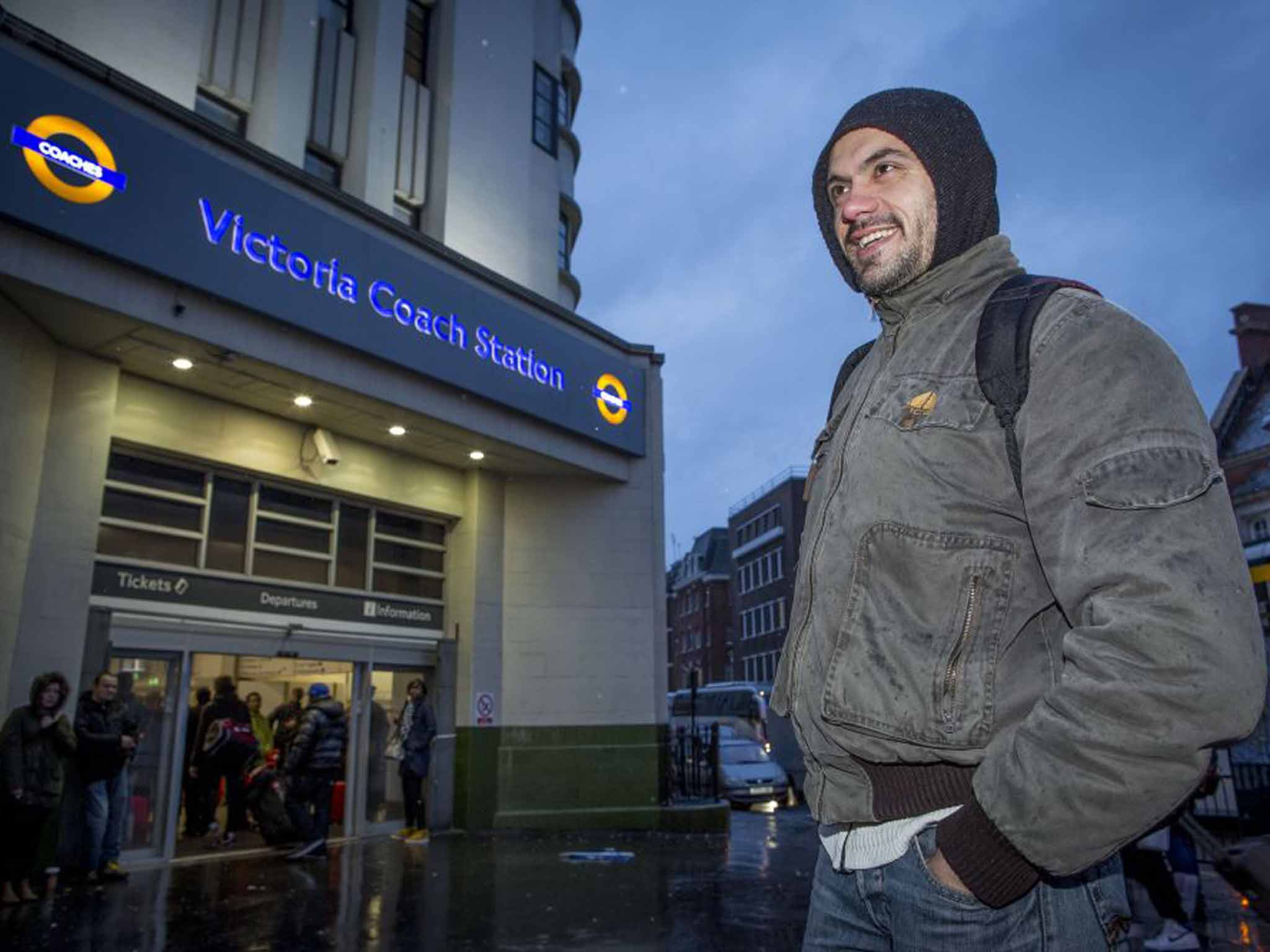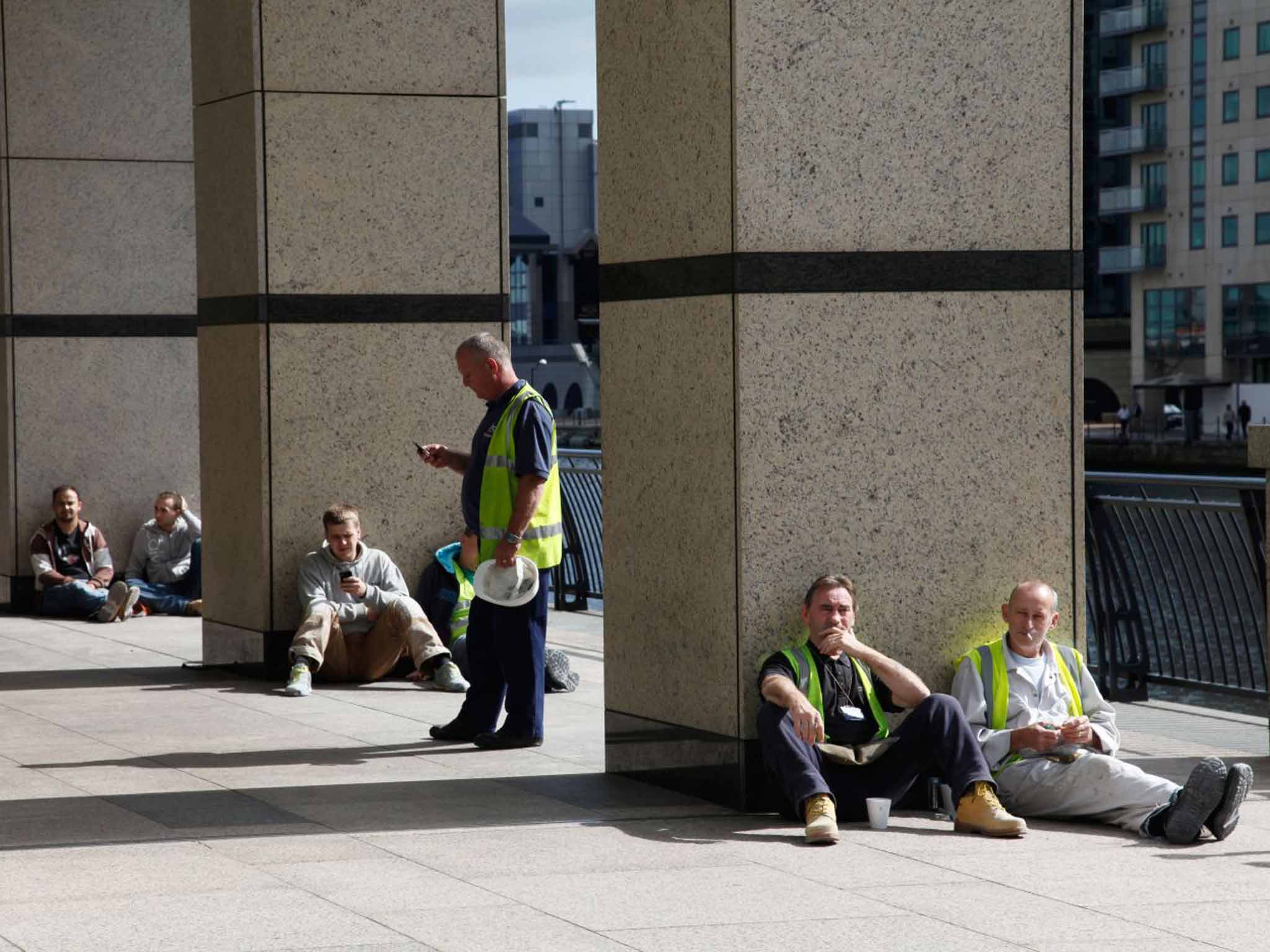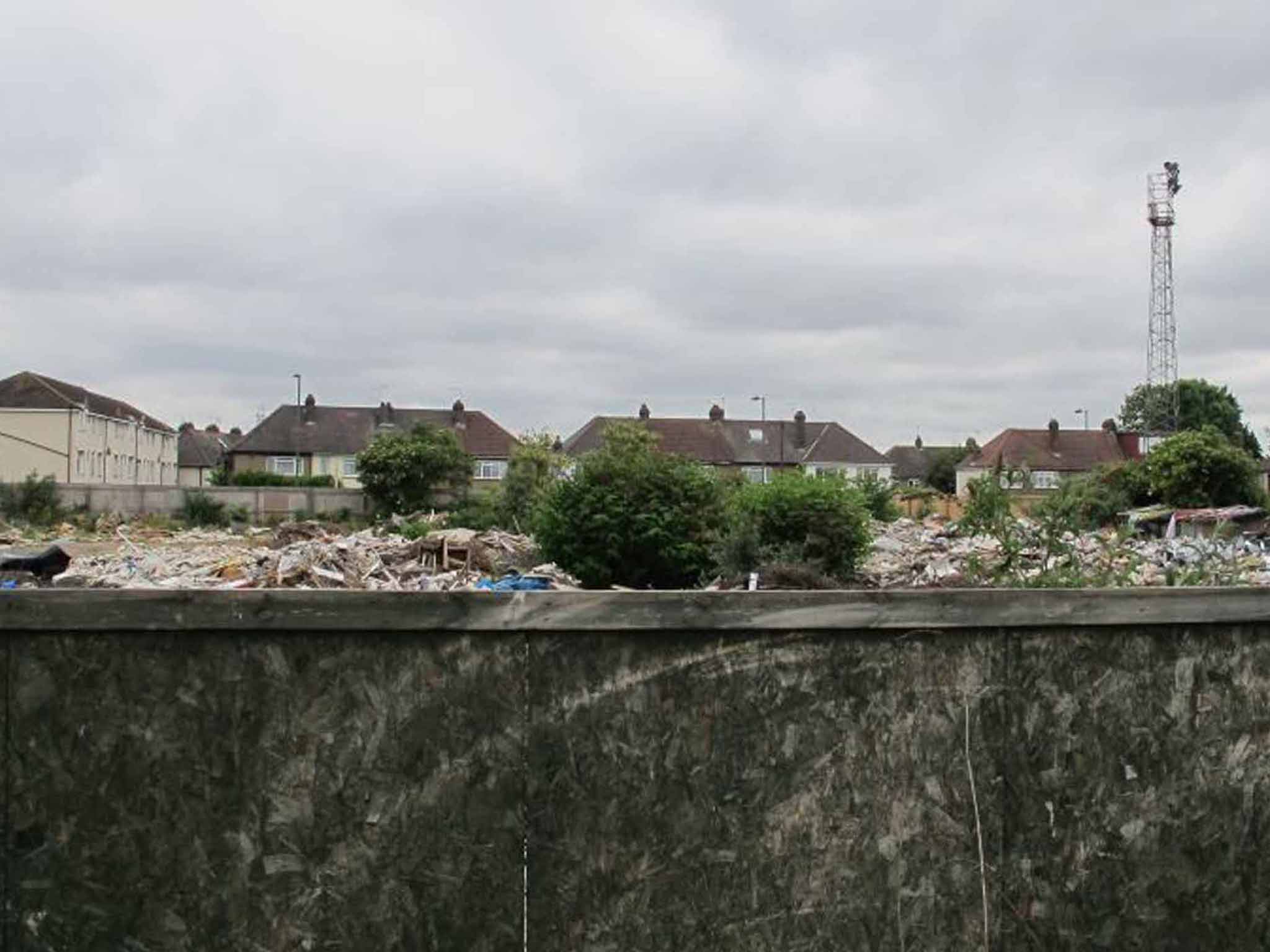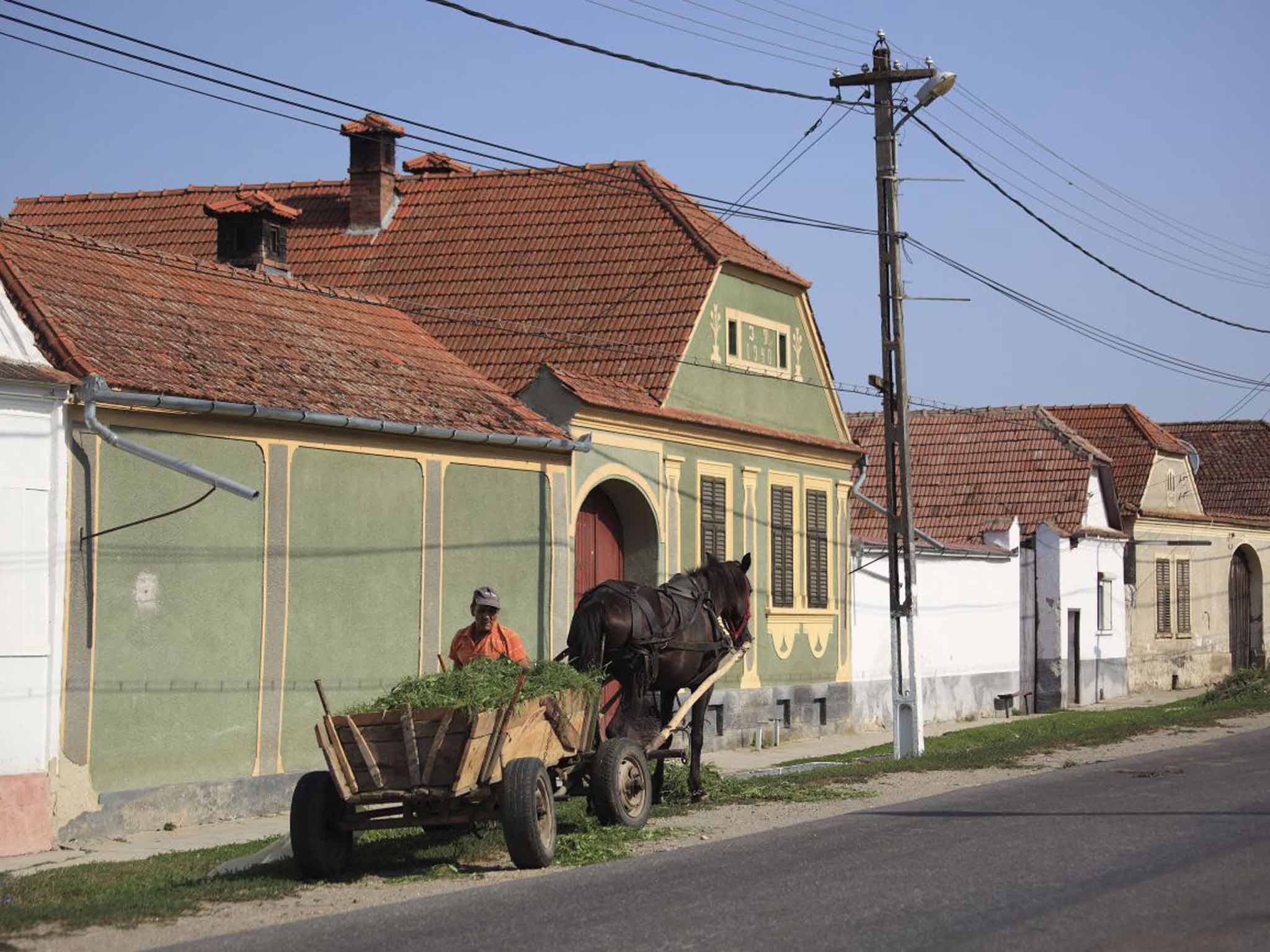Exclusive - The Real Stories of Migrant Britain: Swapping Bucharest for London
In this exclusive extract from her new book on migrants, Emily Dugan tells the story of Mihai. He swapped Romania for Britain in a bid to provide for his family, only to discover that the home he left behind wasn't quite what it seemed

Your support helps us to tell the story
From reproductive rights to climate change to Big Tech, The Independent is on the ground when the story is developing. Whether it's investigating the financials of Elon Musk's pro-Trump PAC or producing our latest documentary, 'The A Word', which shines a light on the American women fighting for reproductive rights, we know how important it is to parse out the facts from the messaging.
At such a critical moment in US history, we need reporters on the ground. Your donation allows us to keep sending journalists to speak to both sides of the story.
The Independent is trusted by Americans across the entire political spectrum. And unlike many other quality news outlets, we choose not to lock Americans out of our reporting and analysis with paywalls. We believe quality journalism should be available to everyone, paid for by those who can afford it.
Your support makes all the difference.It was an unusual way to start the New Year: 52 hours on a bus from Romania to London. I wanted to catch the first coach leaving Bucharest in 2014 and witness the journeys made by people coming to Britain amid hysterical headlines predicting floods of new migrants.
As the public debate about immigration gets noisier, it is too easy to forget that we are talking about a collection of individuals. In this hyped-up discourse, newcomers are often talked about in terms of numbers – or worse – using the metaphors of pestilence and invasion. Even those defending migration often do so with unhelpful generalisations or an over-reliance on cold statistics. Their arguments fail to calm a debate that has always been more about gut feeling and identity than economics.
Over the past year I have immersed myself in the experiences of people who have arrived on this island and attempted to make it their home. I travelled across Europe with Syrians trying to sneak into Britain; went to a mosque in Newcastle with Pakistani men who would be killed for praying back home; attended a Polish-language Mass in Lincolnshire so popular that much of its congregation watch from the car park; trudged around Glasgow's homeless services with a man left stateless and homeless by a squabble between Zimbabwe and Britain; and witnessed a judge deciding in a court on an industrial estate whether one of the country's leading NHS therapists should be banished to Australia.
These people share many common experiences: the struggle to reach Britain and stay here; the tug of two homes; battling with the inefficiency of a Home Office recently declared unfit for purpose; the slog of work and the pain of separation from those they love. But once you hear any of these stories in depth it is the differences that stand out. These differences are what make them human. They have the power to transform each person in the eyes of a sceptical public from immigrant to individual.
***
I first met Mihai on that New Year's Day bus journey. Aged 29, he had been at home in Bucharest for Christmas to see his partner Roxana and their four-year-old son, Mario.

Before that he'd been working in London on building sites that didn't require him to have papers. Mihai tells me that he lives in Hendon, north London, in a flat with 12 other builders, most of whom are from Romania. Working without a National Insurance number weighs heavily on Mihai. Being an illegal employee makes him feel unwanted in Britain and he is desperate to join in and pay taxes. For more than a year he has felt uneasy about his illicit income, knowing that, without being registered, he risks prosecution. I wrote about Mihai and his journey for this newspaper and we kept in touch. This is what happened next.
A few days after arriving back in London in the New Year, he asks his boss for help applying. Working regulations have been lifted for Romanians, so there is no longer any reason to be in the shadows. His boss says that he is too busy to help and changes the subject. After this happens a couple of times, Mihai decides to do it himself. Not confident of his English, he gets a friend to call the helpline and book an appointment in Camden Job Centre Plus.
A fortnight later, Mihai is standing under the green Job Centre Plus sign. He worries what will happen if they realise he has already been working without permission. A security guard on the door takes his papers and ushers him in. He is asked why he has come and Mihai's explanation comes tumbling out. He recalls later: "I told him the truth – that I'd always worked; that I washed dishes and I'd done driving and building. He said it's OK and it's better to show that I've worked and not been stealing things. I said, 'I want to pay taxes. I want the people in the UK to know that I'm working hard and I want to pay to live here'."
When the interviewer asks if he wants to go on benefits. Mihai is quick to reply: "Why would I want to do that? On benefits I'd get maybe £800 but if I work I could get £2,000."

To illustrate his point, he says, "I like working – look at my hands!' and upturns his calloused palms to the interviewer, smiling. As the interview goes on and Mihai's fingers tremble, the man tries to reassure him. "Don't be scared", he says, "I'm not going to kill you."
When he walks outside he is still shaking, but smiling too. "It was OK – he was nice," he says, relieved. His reasons reveal the prejudices still common among his fellow Romanian exiles – he struggles to adjust to the idea of Britain being multi-racial.
"I was nervous I might get an Indian guy because my friends told me they'd be racist to me. I heard people got rejected by them. But it was a black guy and he was nice; funny."
Mihai does not want to bring Roxana and Mario to join him until he has found better work and can afford a place of their own to live in. His current home would never be suitable for them, he says. The conditions in the terraced house are cramped but he is still charged more than £250 a month in rent. He is stuck – unable to afford to leave but desperate for his own home so he can be reunited with his family. He hopes a National Insurance number may help him towards a better-paid job as a driver.
A fortnight later Mihai calls me, elated. "I got the letter. I got it!" A card with his National Insurance number has arrived in the post and now he is part of the legal workforce. His British driving licence has also come through and his dream of a career as a driver now feels within reach. The two small cards are the only prompt he needs to begin planning a future in Britain with Roxana and Mario.
Mihai wants to get married in September. When he suggests an autumn ceremony, Roxana is coy. "She says I have to ask her properly, not on the phone," Mihai explains. With Roxana's words at the top of his mind, Mihai decides he will drive to Romania at Easter and surprise her with a proposal.

When Mihai arrived in Romania he could hardly wait to get to Roxana. But when he opened the door to her flat, Roxana and Mario were not alone. Sitting with the two of them on the sofa was another man. The three were easy together, like a family, and Mihai's stomach flipped with jealousy.
Friends of Mihai's had hinted there might be someone else – "We've seen her in bars with other men," they told him, trying to warn him. But Mihai did not want to believe it.
With little explanation for the intimate scene, Roxana opted for the truth. "I'm in love with him," she said, "and my feelings for you won't come back." Mihai left the flat in a rage.
He returns from the trip more motivated than ever to make his life work in Britain. "It broke my heart. All my feelings for her, she didn't feel them on her side. I'll be in London for a long time now because I don't want to go back to Romania. After that trip I hate Romania."
With a British driving licence, Mihai persuades his boss to take him on as a van driver, delivering materials to the company's sites across London, Kent and Brighton. Not wanting to think about his personal life, he drives all the hours he is offered. The work numbs the sadness and soon he is making up to £2,500 every month, working 14-hour days. Within four weeks he has driven 4,000 miles, stopping only to sleep and barely remembering to eat.
In the months after discovering Roxana's infidelity, one thing keeps gnawing away at Mihai. His son Mario never looked much like him – or anyone in his family – and he is beginning to wonder if the boy has been used to exploit him for money. He had been in a relationship with Roxana when she fell pregnant six years earlier, but not for very long.
"Get a DNA test," one friend advised. Mihai wanted to go back to Romania and visit his grandma anyway, because she had fallen ill, so he called Roxana and said what he wanted to do. In July, Mihai arrived back in Romania. He did not tell anyone he was coming, except his grandmother, though even she was unaware of his real business there. At a hospital in Bucharest, he paid almost €1,000 for the test. A nurse took a blood sample, as well as a piece of fingernail and hair. The results came back: Mario was someone else's son. The news crushed Mihai. As soon as he found out he went back to his grandmother's house and fell apart. He spent the rest of his time in the country lying on the bed in her small flat with his head in her lap like a young boy, while she stroked his hair and told him stories about her life.
In August Mihai worked more than ever, blocking out the pain of the last few months. One night he came back so tired that when he sat down at the table to eat his soup in the evening he fell asleep, the spoon still in his hand. When he woke the next morning in the same position, the bowl of cold soup next to his head, he simply began eating it. Once he'd finished, he went out to work again.
Driving the van makes him feel very fortunate. "I was very lucky with this boss. When I go to the builders' depot or to Wickes I see a lot of people and they are mostly Romanians who are searching for work. They ask everyone who goes outside if they have work for them. I feel sorry for them. Most don't have a National Insurance number. I have a lot of friends in Romania who want me to bring them to London. They don't realise how hard it is to find a job."
The 12 other builders who Mihai lives with are keen to set him up with a new girl after Roxana's betrayal. He was uninterested at first; he was badly hurt and didn't want to think about women for a while. Then one of his housemates with a girlfriend in Romania started to tell him about this girlfriend's widowed sister, Irina. The more Mihai heard about her, the more he liked the sound of her.
They made friends on Facebook and soon they were messaging each other all through the day, Mihai sneaking a look at his mobile whenever he stopped the van. Irina is six months older than him and had just turned 30. Her husband died in a car accident two years earlier, leaving her behind with their daughter Maria, seven. Now she survives on the proceeds of a small garden-farm, raising pigs and selling corn. The friendship gives Mihai a renewed sense of purpose. When he hears that Irina has an old Nokia phone with no Facebook messenger on it, he sends her a Samsung smartphone for her birthday so they can chat whenever they want.
He asks if her daughter Maria would like anything and Irina is suspicious. "You're a stranger, why do you want to buy something for my little girl?" Mihai could not really explain. "I just feel I'd like to do this." It made him feel good to help out when they had so little. Eventually Irina put Maria on the phone to Mihai one day and she asked for a doll. "She didn't want gadgets or phones or tablets, she just wanted a doll. It was wonderful. I felt wow, I want to meet both of them."
With no money now being sent to Roxana, he enjoys the chance to spoil others. On his sister's birthday he sends her an enormous flat-screen television.
Over the late summer and autumn Mihai grows to like Irina more and more. "I like her because she doesn't want anything for free; she works for what she has. When I call her she has her headset on and she is always working, cleaning, cooking or out on the farm. She doesn't know but she gave me life lessons. I spend £700 here in London on nonsense, on PlayStation games and junk food and things like this. She only has £70 a month and she is raising a child."
There are not many pictures of her on Facebook, but the few there are show a beautiful young mother with dark glossy hair. Mihai resolves to go to Romania in October to meet her. He has only five days off but he can do it cheaply; his boss is letting him take the van. The week before he leaves he feels like an excited teenager. Irina is planning to cook for him and he is desperate for it to go well. "I'm nervous about it but I will ask her if she will go out with me. I told her I want to know you better because you're a nice person. I saw good things in her and I know I need to fight for her if I want her; to gain her trust."
The previous two times Mihai returned from a trip to Romania it had been under the shroud of a fresh betrayal. But his last trip of 2014 ends differently. Irina has agreed to a relationship and as he goes about his deliveries it is with a smile fixed permanently to his face.
The visit to Irina and her daughter Maria was a success. They talked and talked at her farmhouse and he sat with Maria while she played with the doll and toy pram he had given her. He got to see his grandma, and he visited his sister. Though he rarely sees his parents, he is close to his sister and her son, who was named Mihai after him and is also his godson. Mihai junior is nine and spending time with him eases the pain of losing Mario. "It's not Mario's fault. But I won't see them anymore. It harms my soul. I don't want contact with them. There's something here for Mario," he says, patting his chest, "but the deception was too big. To raise a child for six years and then discover it's not yours. They are feelings you can't find words for."
When he returns to Britain he feels torn between the two countries for the first time all year. But he still sees the flaws back home. "I miss my grandma and my sister and my nephew but that's it. People say: 'You don't miss Romania, you traitor.' I love my country but life is very hard there."
In the first nine months of being in charge of the van he has driven more than 35,000 miles. Next Easter he will make the drive back to Romania to see Irina. He would like to bring her to Britain but he knows she loves the farm and, with little English, would struggle to make a living in London.
As the days go by, his plans for the future change. After Roxana, he was convinced that his long-term future was in Britain. Now he thinks he may save up for five years and build a better house for him and Irina in her village. To have enough for a house – and to supplement what would be a lower income in Romania – he will need to save more than ever before. The prospect is not daunting to him. "I am powerful," he says, curling his bicep with a cheeky grin. "I can work as long as there are days."
'Finding Home: The Real Stories of Migrant Britain' by Emily Dugan (Icon Books, £12.99) is published on Thursday
Join our commenting forum
Join thought-provoking conversations, follow other Independent readers and see their replies
Comments